.jpg?width=300&name=Untitled%20design%20(22).jpg)
Expanding Soil Health Through Carbon Markets
USDA - Regional Conservation Partnership Program
RCPP Expansion to 10-State Region
The United States Department of Agriculture’s (USDA) Natural Resource Conservation Service (NRCS) approved a $25 million investment in the American Coalition for Ethanol (ACE)-led Regional Conservation Partnership Program (RCPP) expansion that builds on the successful South Dakota-based project announced in 2021 to unlock corn ethanol access to clean fuel markets and new tax incentives, such as the 45Z clean fuel production credit, based on the adoption of climate-smart agricultural practices which reduce greenhouse gas (GHG) emissions.
The RCPP funding will help farmers adopt reduced tillage, nutrient management and cover crops on nearly 100,000 acres across 167 counties surrounding 13 ethanol facilities partnering with ACE to implement the project in the 10-state region of Illinois, Indiana, Iowa, Kansas, Minnesota, Missouri, Nebraska, Ohio, South Dakota and Wisconsin. The sites were strategically chosen to provide the project’s scientific team with statistically significant data regarding the GHG effect of conservation practices in different soil types and climates.
Backgrounders
ELIGIBLE COUNTIES AND STATES. PAYMENT RATES.
Although the initial enrollment deadline has passed, farmers can join a waitlist for potential future enrollment opportunities based on available funding.
Click on a state below to learn more, including details on payment rates.
MARKET BARRIERS PREVENTING FARMER AND ETHANOL PRODUCER ACCESS TO NEW MARKET OPPORTUNITIES
- Despite the potential for farm-level practices to reduce GHG emissions from ethanol, market regulators generally do not consider on-farm carbon reductions towards GHG emissions targets.
- Established compliance carbon markets like the California LCFS program do not yet credit GHG reductions achieved through carbon-sequestering conservation practices in ethanol feedstock production.
- These regulators want better localized quantification, verification, and modeling protocols before granting access to these low carbon markets. The same barriers arise in discussions on federal low carbon policies or tax credits.

The Near-Term Opportunity:
FINANCIAL INCENTIVES FOR FARMERS IN ELIGIBLE COUNTIES
- $15 million for farmers in 167 eligible counties across 10 states to adopt conservation tillage, nutrient management, or cover crop practices.
- Farmers will work directly with the ACE and the RCPP team to access funding.
- This RCPP funding is in addition to what the 167 counties and 10 states already receive in USDA conservation support, increasing the overall amount of USDA funding in each qualifying county and state. The RCPP funds do not compete with other USDA conservation funding.

OUR SCIENTIFIC APPROACH TO QUANTIFY THE BENEFITS
- A technical team of scientists from land-grant universities will measure and quantify the soil health and GHG benefits resulting from the adoption of approved conservation practices.
- The RCPP will pay for the on-farm sampling and quantification.
- The Department of Energy's (DOE) Sandia National Laboratory will use the data we collect to calibrate existing models and address gaps currently preventing farmers and ethanol producers from monetizing agriculture practices in clean fuel markets and tax credits.
- Our project will create a quantification and modeling system free to use by farmers and ethanol producers.
- Quantification of GHG benefits will be a step toward accessing clean fuel markets and new tax credits.
.jpg?width=300&name=Untitled%20design%20(26).jpg)
The Big Picture Opportunity:
SECURING ACCESS TO NEW MARKETS AND TAX CREDITS
- The RCPP partners will leverage USDA resources to secure access for farmers and ethanol companies to new clean fuel markets and tax credits.
- U.S. transportation fuels account for nearly 30% of annual U.S. GHG emissions.
- Expanding low carbon ethanol usage is one of the best ways to make meaningful gains quickly.
- Researchers at MIT and Harvard verify that average corn ethanol reduces GHGs by about 50% compared to gasoline; the report also found corn ethanol’s carbon intensity will continue to get better thanks to innovations on the farm and in ethanol facilities.
- USDA estimates U.S. farmers currently store over 20 million tons of carbon per year and that they can store an additional 180 million metric tons/year representing 12-14% of U.S. carbon emissions through the adoption of conservation practices.
- Argonne National Laboratory has found that specific crop rotation systems in the upper Great Plains would result in increased carbon sequestration and generate hundreds of dollars per acre in revenue if credited in state low carbon fuel markets.

Questions?
Contact Katie or Ashley
- Katie: 605-306-6107
- kmuckenhirn@ethanol.org
- Ashley: 605-306-6174
- ahillmer@ethanol.org
South Dakota RCPP
In September 2021, the United States Department of Agriculture (USDA) funded the Expanding Soil Health Through Carbon Markets Regional Conservation Partnership Program (RCPP), an exciting project developed by the American Coalition for Ethanol, South Dakota Corn Utilization Council, Dakota Ethanol, South Dakota State University, and Cultivating Conservation to pay farmers who institute conservation practices to benefit soil health, improve productivity, and sequester carbon and other greenhouse gases (GHGs).
Project Partners


![]()

.png?width=300&name=Iowa%20(1).png)
.png?width=300&name=kansas%20(1).png)
.png?width=300&name=minnesota%20(1).png)


.png?width=300&name=south%20dakota%20(1).png)
.png?width=300&name=IndianaOhio%20(1).png)